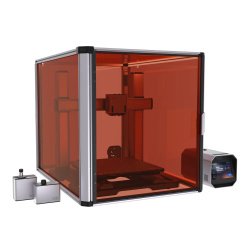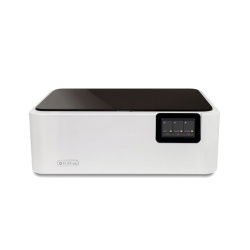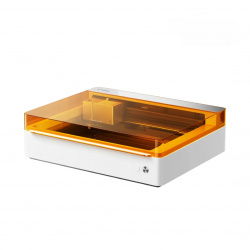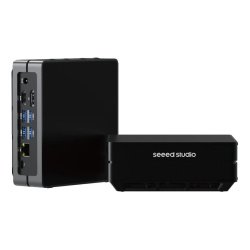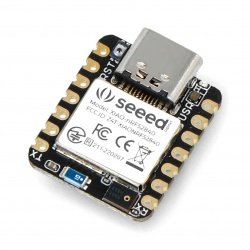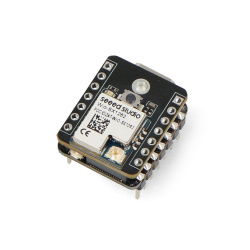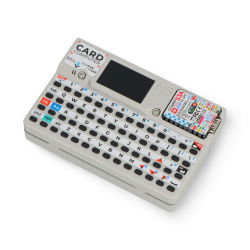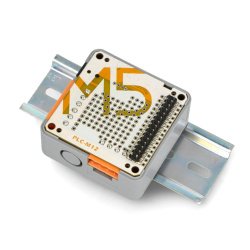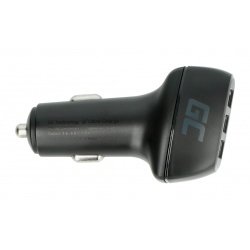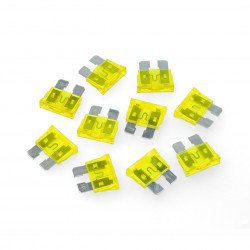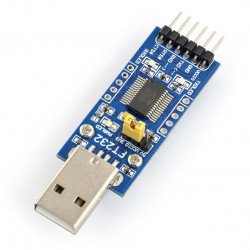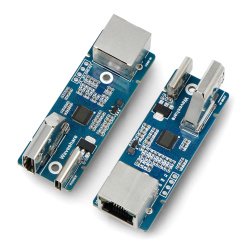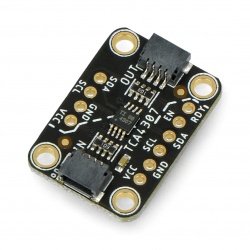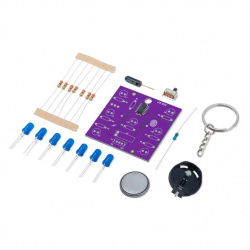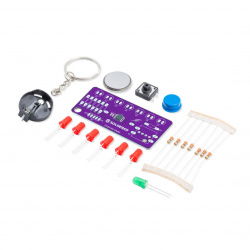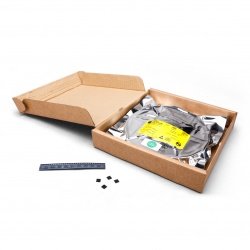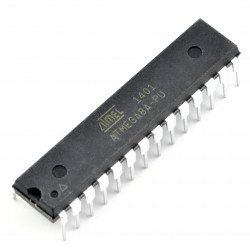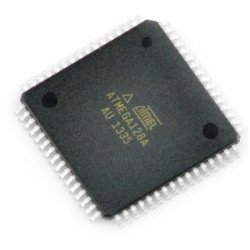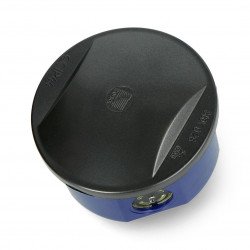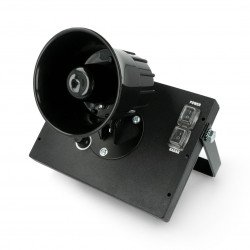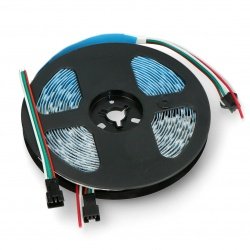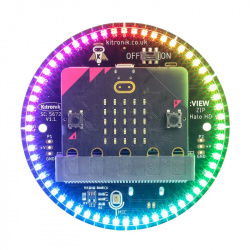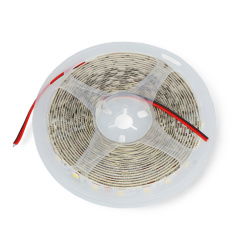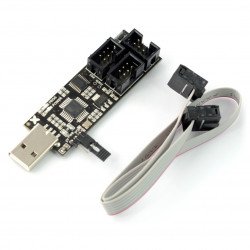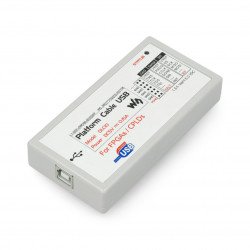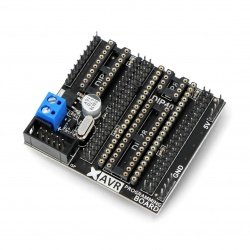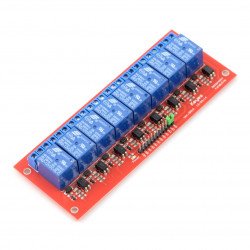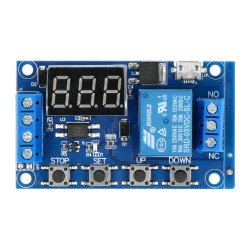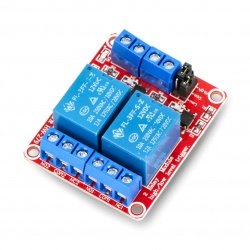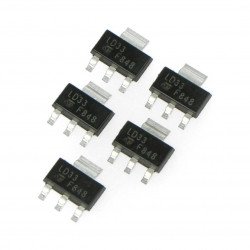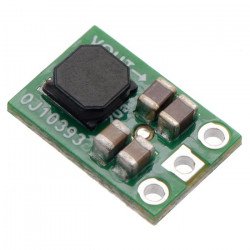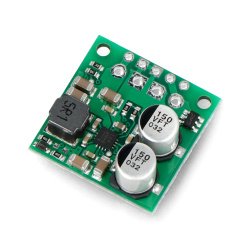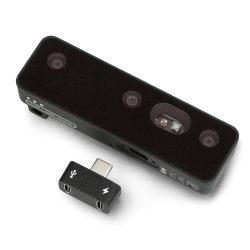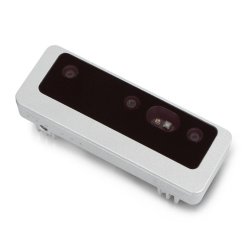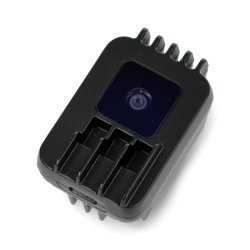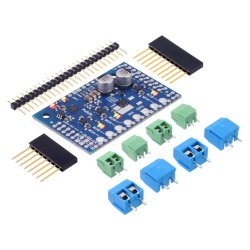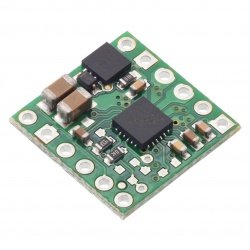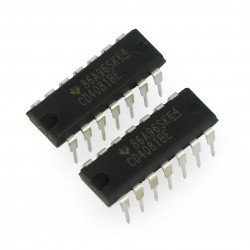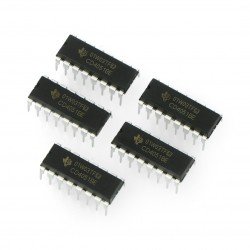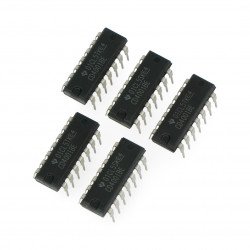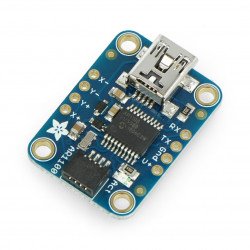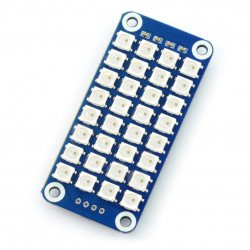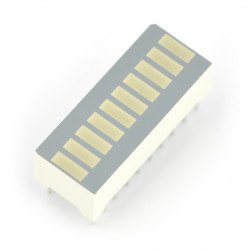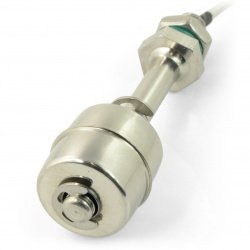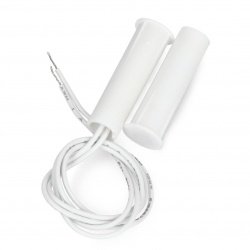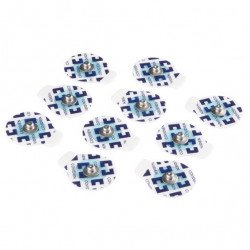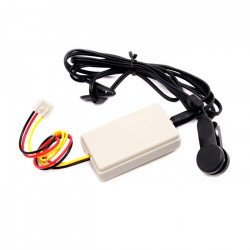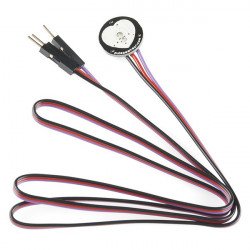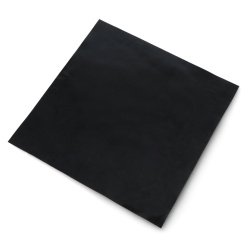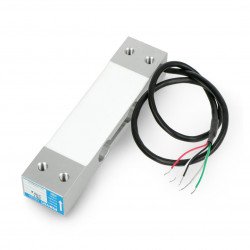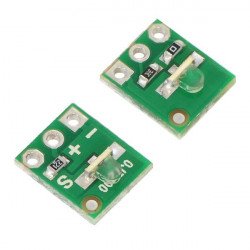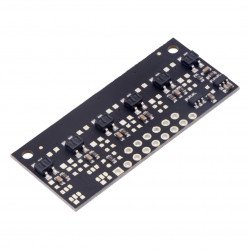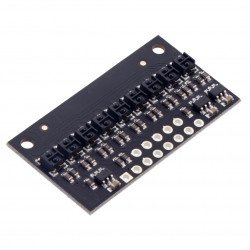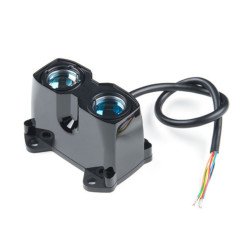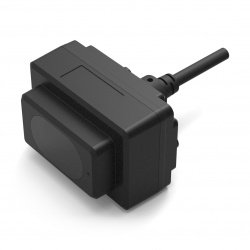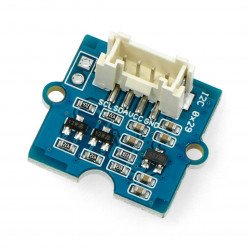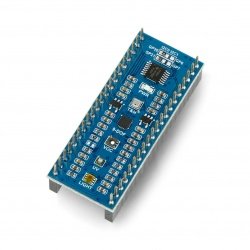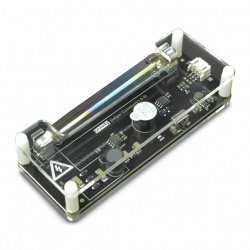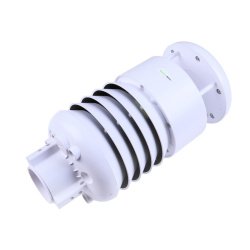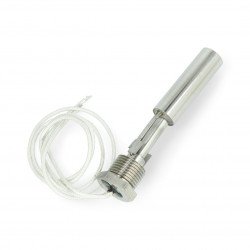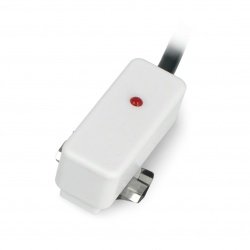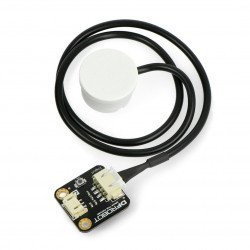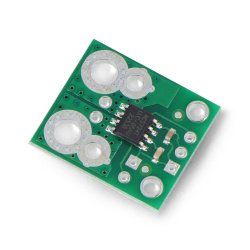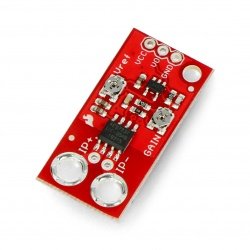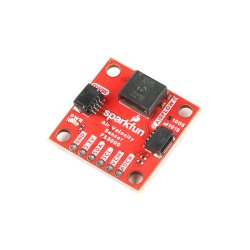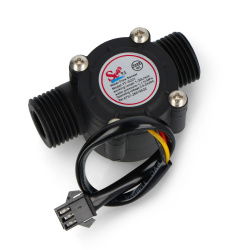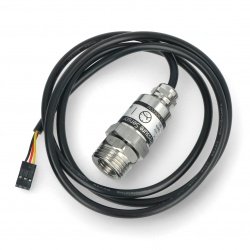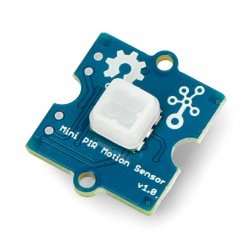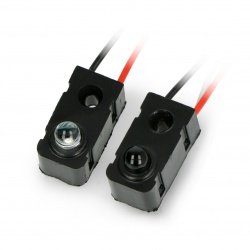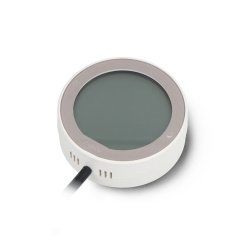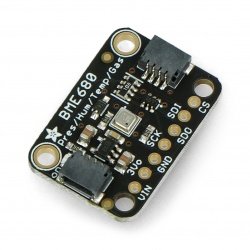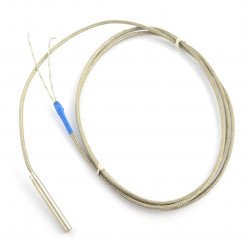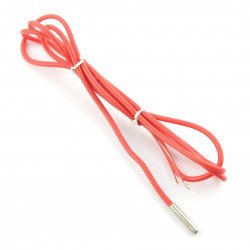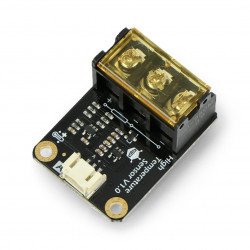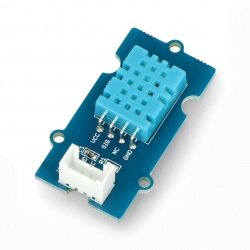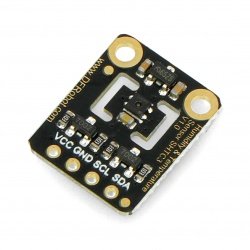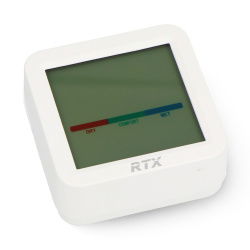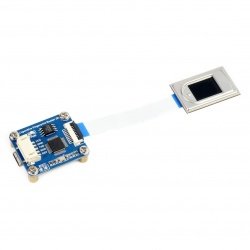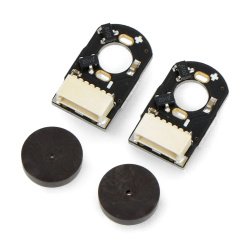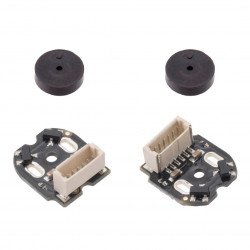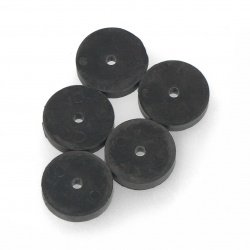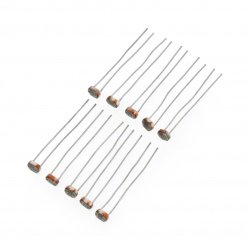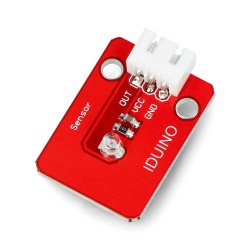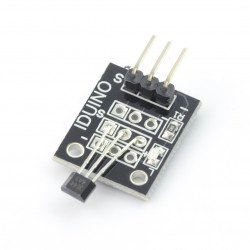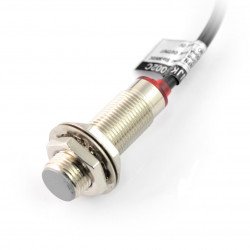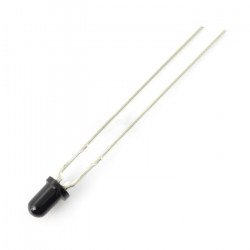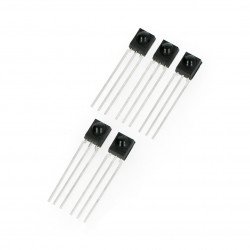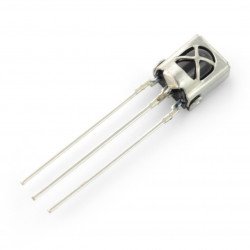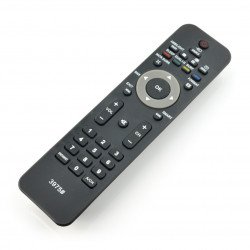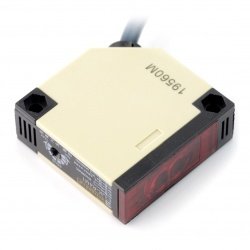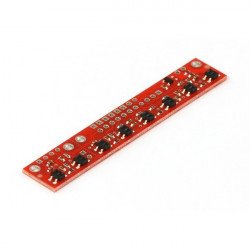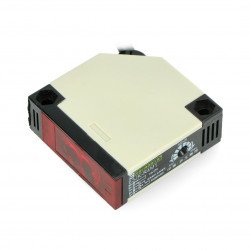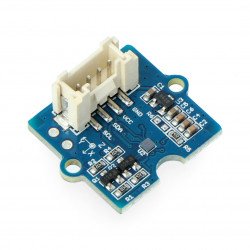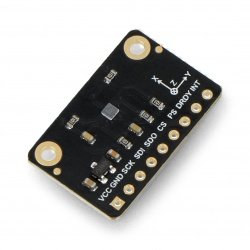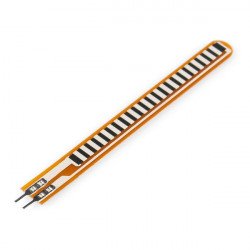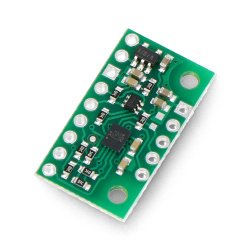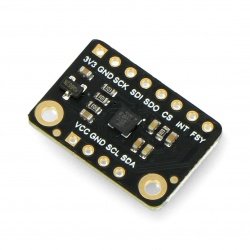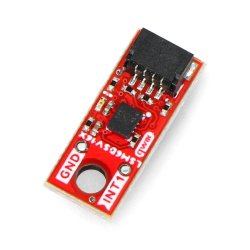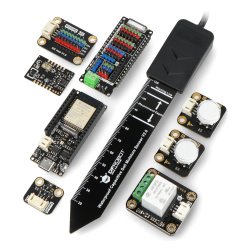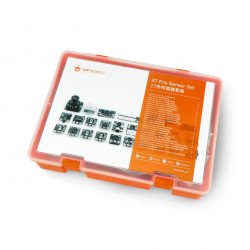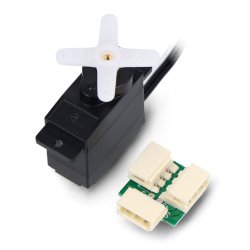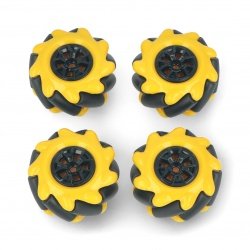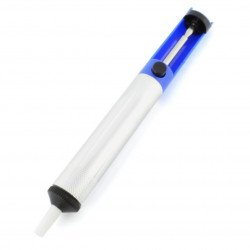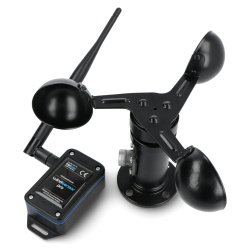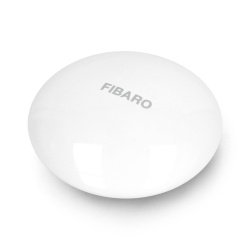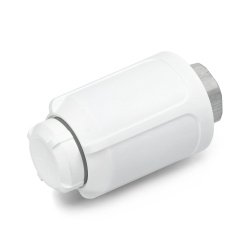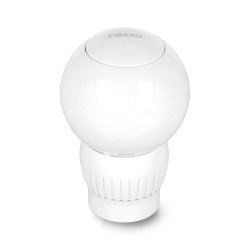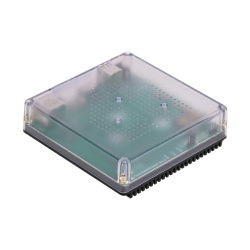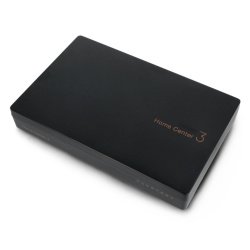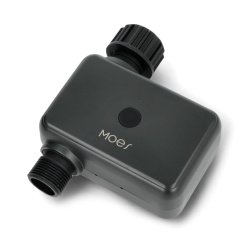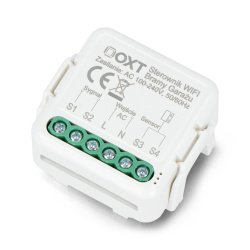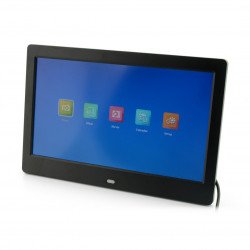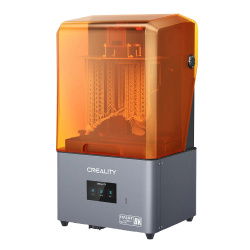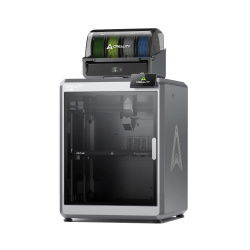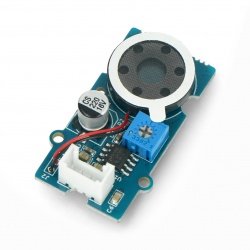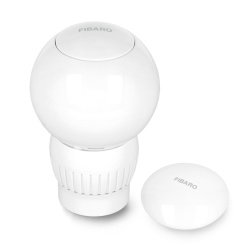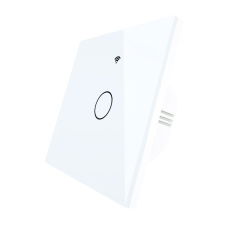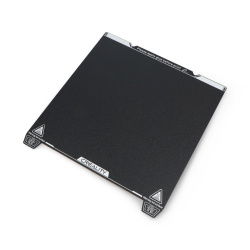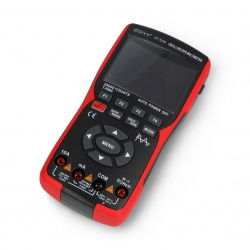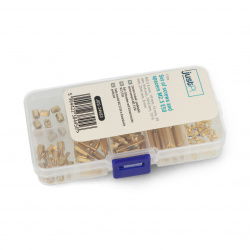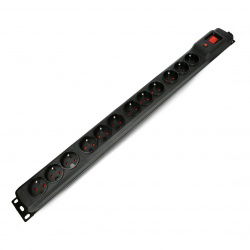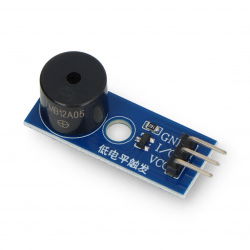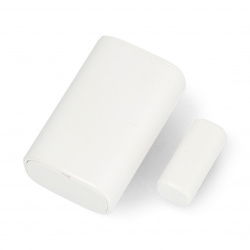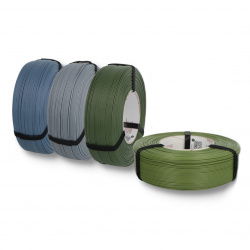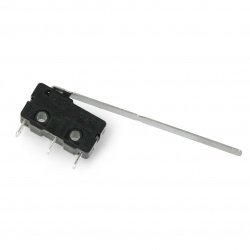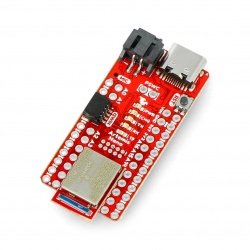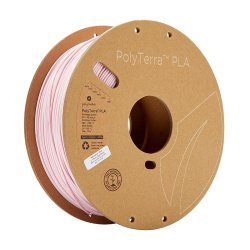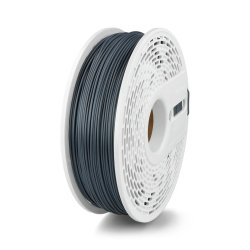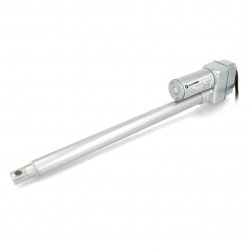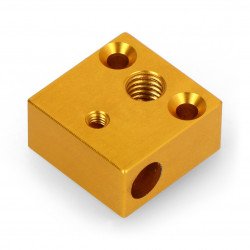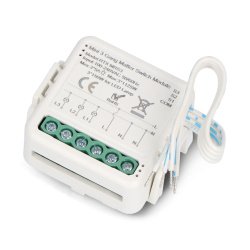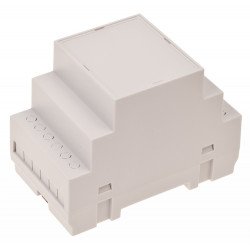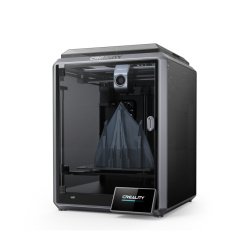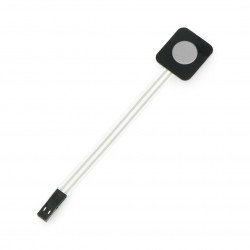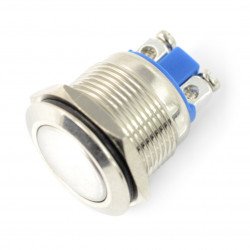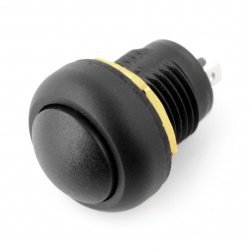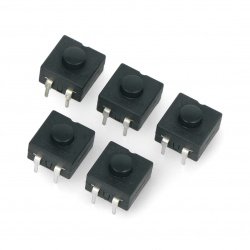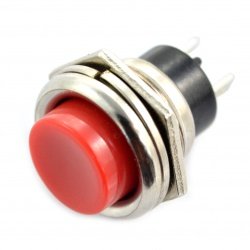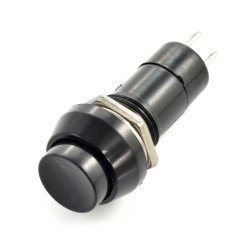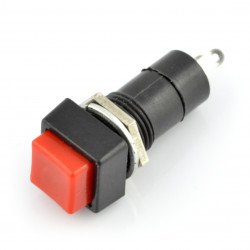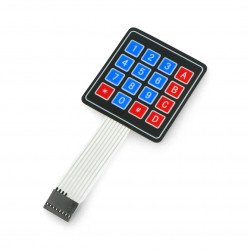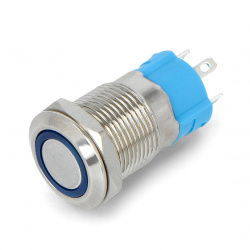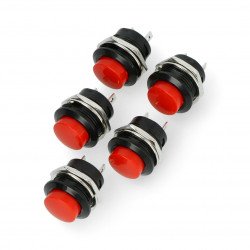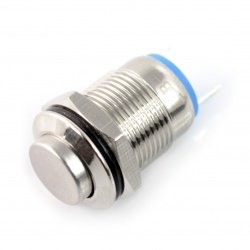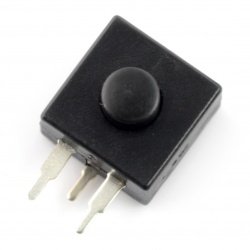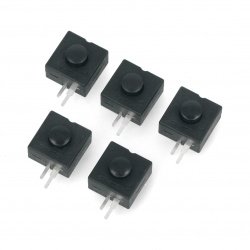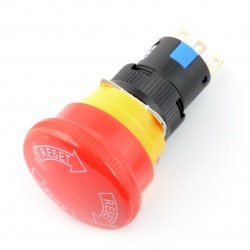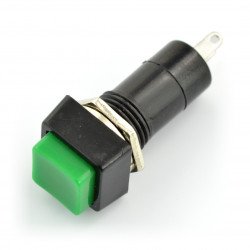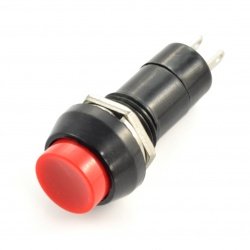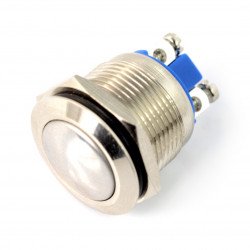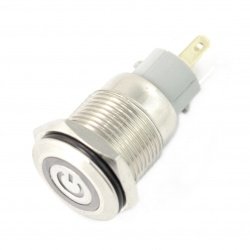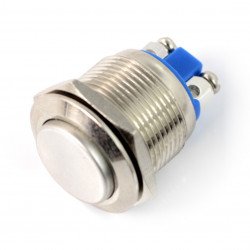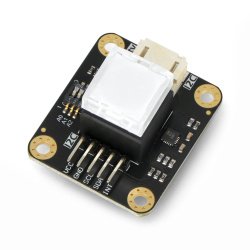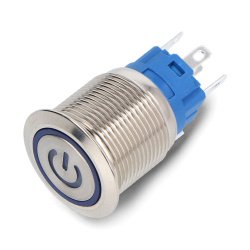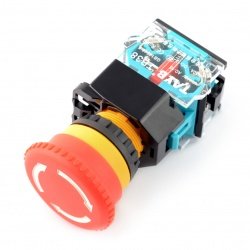Push buttons are commonly used in electrical devices and installations. Thanks to them it is possible to start up, turn them off, set their operating parameters, make changes in operation and manage their operation. They are used in everyday life, e.g. at home when the doorbell rings, at work when controlled by machines or even on the bus when you want to open the door. There are also buttons designed for specialized, advanced projects concerning medical industry. They are essential equipment of the machine control panels, where efficiency and ease of use as well as work efficiency depends to a significant extent on them. We offer a wide range of switches with On-Off and On-On buttons. You can choose between bistable and monostable switches, in different sizes, shapes and colors. They also differ in voltage supply. Thanks to the variety of models you can precisely adjust the button switches to your design and your own preferences.
Switches with button
Membrane keypad - 1 grey key - self-adhesive
The keyboard is equipped with a single round key in grey . On the back there is a layer of adhesive tape. Equipped with 94 mm long tape with a 2-pin plug with a 2.54 mm...ON-OFF switch monostable - PBW-19BS - 2A / 250V flat
Monostable flat button with a loading capacity of contacts: 2 A for 250 V.ON-OFF bistable switch 12mm - 5A/250V - round - black
Round switch, bistable, black. Contact rating 5 A at 250 V or 8 A at 125 V .Bistable switch ON-OFF PB-12A-2, round 30V/1A - 5pcs.
Bistable switch with a round attachment with a loading capacity of 1A contacts for 30 V. Switch is available in two colors sent randomly.Switch ON-OFF PBS26B 250V/3A - red
The switch is momentary with a round attachment with a loading capacity of 3A contacts for 250 V.ON-OFF Switch PBS 11A, 250V/1A - black
Bistable switch with a round attachment with the contacts' loading capacity of 1 A for 250 V or 3 A for 125 V.Switch ON-OFF square 250V/1A - red
Switch with a square attachment with the contact's loading capacity of 1 A for 250 V or 3 A for 125 V.Self-adhesive membrane keyboard 4x4 - 16 keys
Diaphragm keypad equipped with 16 keys in 4 x 4 arrangement . It has numbers: from 0 to 9, letters: A, B, C, D and special characters: * i #. On the back of the keyboard there...ON-OFF switch bistable - 2A / 250V - flat - blue
Flat, bistable switch with blue backlight. Contact load capacity 2 A for 250 V.Switch ON-OFF momentary, round 250V/3A - red
Switch with a round attachment with the contact's loading capacity of 3 A for 250 V. Items are sold in sets of 10 pieces.ON-OFF switch monostable - PBW-12B - 2A 250V
Projecting monostable switch with contact rating of 2 A for 250 V.Bistabile switch ON-OFF PB-12A-213WD, round 30V/1A
Bistable switch with a round attachment with a loading capacity of 1A contacts for 30 V.Bistable switch ON-OFF PB-12A, round 30V/1A - black - 5pcs.
Bistable switch with a round attachment with a loading capacity of 1A contacts for 30 V or 3 A for 125 V.Switch ON-OFF PBS26B 250V/3A - black
Switch with a round attachment with the contact's loading capacity of 3 A for 250 V.Safety switch ON-OFF mushroom - 30mm
The "mushroom" safety switch with a loading capacity of contacts: 3 A for 250 V.Switch ON-OFF square 250V/1A - green
Switch with a square attachment with the contact's loading capacity of 1 A for 250 V or 3 A for 125 V.ON-OFF Switch PBS 11A, 250V/1A - red
Bistable switch with a round attachment with the contacts' loading capacity of 1 A for 250 V or 3 A for 125 V.ON-OFF switch monostable - PBW-19BS - 2A / 250V convex
Monostable convex button with a loading capacity of contacts: 2 A for 250 V.ON-OFF bistable switch - PBW-16APP - 2A 250V - flat green
Flat bistable button with green illumination. Contact load is up to 2 A for 250 V.ON-OFF switch monostable - PBW-19BS - 2A / 250V protruding
Monostable salient button with a loading capacity of contacts: 2 A for 250 V.Gravity - RGB LED button - DFRobot DFR0991
Module with a button from DFRobot. Thanks to the built-in RGB LED, the button is illuminated in different colors . The module has a built-in Gravity connector with an I2C...ON-OFF switch monostable - flat - blue - 220V
A flat, monostable switch with the blue backlight.Safety switch ON-OFF mushroom - 40mm
The "mushroom" safety switch with a loading capacity of contacts: 10 A for 440 V.See also
Wide selection of buttons
In our Botland online store you will find a wide selection of various types of buttons . From joysticks to keyboards and switches of all kinds, up to large buttons . You will find all these items on our store's website.
In the button switches section, we have collected On-Off and On-On switches. Moreover, we offer them in various shapes and sizes. Buttons can be square, round or flat. Foot or traditional, with or without backlight. The choice is yours.
Electric Switch and Button - Minor differences in naming
In everyday speech, a button and a switch function interchangeably, but in technical language they are separate systems. A simple example to illustrate - a bell and a light switch. The switch is a switch , it works by changing the position of the contacts (by pressing).
To turn it off you need to use it again. A bell is a button . It works as long as we press it. After use, it returns to its starting position. Sometimes buttons are called momentary or impulse buttons because when pressed, they close the contacts and then open them.
Monostable and bistable buttons – what are they?
Types of buttons can be divided according to their operation. Following this distinction, one should distinguish between monostable and bistable switches. A monostable button is one that changes its state under the influence of external action and returns to its previous state after the action stops (enables monostable control).
A bistable switch is one that changes its state under the influence of external action and remains in the changed state after the action stops (allows for bistable control). In our store, in the button switches section, both types of switches are available, enabling you to control lighting or control a given device.
Push button switches - Botland - Robotics shop
In this category, we offer monostable and bistable buttons with pin pitches ranging from 2.54 mm, 5 mm, 5, 5 mm, 8.5 mm, 9.5 mm to 18 mm. In addition, individual buttons differ in the number of pins, maximum contact load and, consequently, in their application.
We offer, among others: threaded push button switches. The monostable and bistable buttons with thread are installed by screwing them into the housing. The bistable button can be used, among others, to control LED lighting from several places.
We also offer modules with a button illuminated by an LED, providing information about the current status of the button. Clear marking of the pins on the board makes it easier to connect and operate the modules. We ship each ordered product as soon as possible, so that the specific delivery time is limited to a minimum.
Due to the way they work, buttons are divided into bistable and monostable. Monostable buttons change their state under the influence of external action (e.g. pressing), but when the external action ceases, they return to their original state. This means that they enable so-called monostable control (necessary in some systems or devices). The monostable button can be used, among others, in alarm systems. Moreover, this type of electric button is used to control lighting (e.g. LED lighting )
A monostable electric switch differs from a monostable switch in the way it operates. Monostable switches change state when exposed to external actions. However, when this action stops, they immediately return to their original state. In turn, monostable buttons also change their state under the influence of external actions, but when this action stops, they still remain in this (changed) state. Returning to the original state requires renewed external action.
Push button switches are elements that enable manual (manual) control of connected electrical circuits. Push-button switches usually have markings on them to identify their condition. Push button switches are used both for monitoring and controlling connected electricity receivers.




